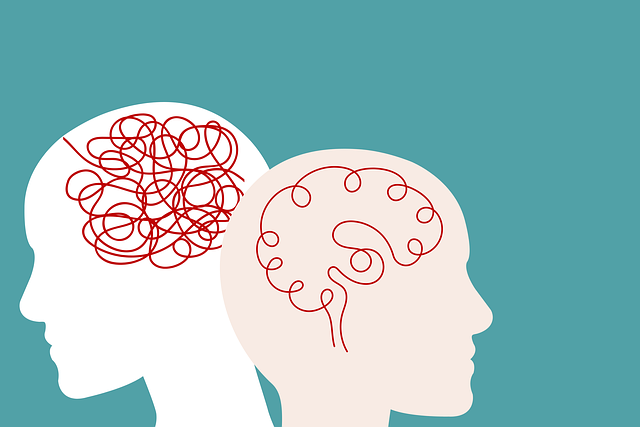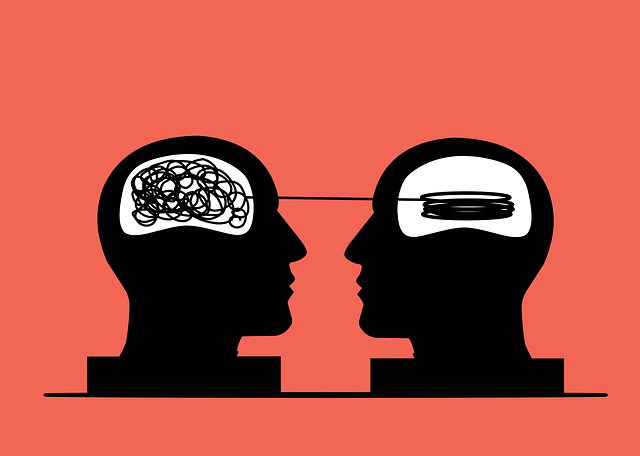Parker Mindfulness Therapy is an effective group facilitation approach that uses mindfulness techniques to enhance mental wellness, manage stress, and reduce anxiety. By creating a supportive environment with clear ground rules, facilitators guide participants through exercises that boost self-awareness, emotional regulation, and community building. This method, ideal for organizations hosting stress management workshops or promoting coping skills development, equips individuals to navigate life's challenges with resilience. Incorporating mindful exercises like Parker Mindfulness Therapy, along with engaging activities and crisis intervention guidance, fosters open dialogue, reduces stigma, and strengthens group dynamics, ultimately enhancing the overall mental wellness of participants.
“Unleash the power of group facilitation for mental wellness with an exploration of Parker Mindfulness Therapy techniques. This comprehensive guide delves into creating therapeutic spaces that foster open dialogue and active participation. Discover how mindful exercises and effective communication strategies can revolutionize your approach to group therapy. By understanding and implementing these techniques, facilitators can enhance emotional well-being and create a supportive environment for profound personal growth.”
- Understanding Parker Mindfulness Therapy: A Group Facilitation Approach
- Creating a Safe and Supportive Environment for Open Dialogue
- Techniques to Foster Active Engagement and Participation
- Incorporating Mindful Exercises and Activities in Group Sessions
- Effective Communication Strategies for Group Leadership
Understanding Parker Mindfulness Therapy: A Group Facilitation Approach

Parker Mindfulness Therapy is a group facilitation approach that emphasizes the power of mindfulness to enhance mental wellness. This therapeutic technique focuses on teaching individuals practical coping skills and strategies to manage stress, anxiety, and other psychological challenges. By fostering a supportive and collaborative environment, facilitators guide participants through exercises designed to improve self-awareness, emotional regulation, and overall well-being.
The approach prioritizes active engagement and peer support, encouraging open dialogue and sharing of experiences within the group. This not only boosts confidence but also promotes a sense of community among members. Through regular sessions, Parker Mindfulness Therapy helps individuals develop effective coping mechanisms, enabling them to navigate life’s stressors with greater ease and resilience. It is an ideal method for organizations aiming to facilitate stress management workshops and promote the coping skills development needed in today’s fast-paced world.
Creating a Safe and Supportive Environment for Open Dialogue

Creating a safe and supportive environment is paramount when facilitating mental wellness groups, as it encourages open dialogue and fosters trust among members. This involves establishing clear ground rules that emphasize respect, confidentiality, and active listening. Facilitators should model empathetic communication, ensuring every participant feels heard and validated. Techniques like Parker Mindfulness Therapy can be instrumental in achieving this balance, helping individuals cultivate self-awareness and develop coping strategies.
By prioritizing a non-judgmental atmosphere, mental health professionals can facilitate meaningful discussions around sensitive topics related to mental illness stigma reduction efforts. This approach extends beyond the group setting, influencing how members perceive themselves and others. Effective risk management planning for mental health professionals is also integrated into this process, ensuring that participants feel secure while exploring their experiences and emotions.
Techniques to Foster Active Engagement and Participation

Facilitating a mental wellness group requires engaging techniques to encourage active participation and foster a supportive environment. One effective method is incorporating mindfulness exercises tailored for group settings, such as guided meditations led by facilitators like those trained in Parker Mindfulness Therapy. These practices not only promote emotional well-being promotion techniques but also help members cultivate present-moment awareness and reduce mental illness stigma reduction efforts within the group.
Interactive activities, like open discussions on mental health topics, allow participants to share their experiences and learn from one another. Incorporating diverse perspectives encourages active engagement and strengthens the sense of community. By combining these techniques with the core principles of mind over matter, facilitators can create a safe space where members feel empowered to navigate their emotional challenges together, ultimately enhancing group dynamics and individual resilience.
Incorporating Mindful Exercises and Activities in Group Sessions

Incorporating mindful exercises and activities into group sessions is a powerful technique that can significantly enhance mental wellness. Drawing from practices like Parker Mindfulness Therapy, facilitators create safe spaces where participants engage in present-moment awareness, breathwork, or gentle movement. These techniques not only promote relaxation but also foster emotional intelligence, enabling individuals to better understand and manage their feelings. By integrating such mindfulness activities into group dynamics, facilitators encourage active participation, build a sense of community, and enhance the overall therapeutic experience.
Cultural sensitivity in mental healthcare practice plays a crucial role in making these sessions inclusive and effective. Incorporating diverse perspectives ensures that exercises resonate with participants from various backgrounds. For instance, adapting mindfulness practices to incorporate cultural traditions can increase engagement and foster a deeper connection during group discussions. Additionally, public awareness campaigns development around mental wellness can further validate the importance of these exercises, encouraging more individuals to embrace mindfulness as a tool for emotional well-being.
Effective Communication Strategies for Group Leadership

Effective communication is a cornerstone of successful group facilitation, especially when promoting emotional well-being through techniques like those offered by Parker Mindfulness Therapy. Group leaders must cultivate an open and inclusive environment where every member feels heard and respected. This involves active listening, ensuring that participants’ voices are given equal weight, and creating safe spaces for vulnerability. By fostering a sense of community, facilitators encourage honest expression and meaningful interactions, which are essential for building trust within the group.
Utilizing compassion cultivation practices can significantly enhance these communication strategies. Leaders should model empathy and understanding, reflecting on individuals’ feelings and experiences without judgment. This approach not only supports participants’ emotional well-being but also facilitates a deeper connection among group members. Moreover, incorporating crisis intervention guidance allows facilitators to navigate sensitive discussions or unexpected events, ensuring the safety and stability of the group dynamics, thus creating an optimal environment for growth and healing.
Parker Mindfulness Therapy offers a powerful framework for group facilitators aiming to enhance mental wellness. By creating safe spaces, fostering active participation, and incorporating mindful exercises, facilitators can guide individuals towards improved well-being. This approach encourages open dialogue, promotes effective communication, and enables transformative experiences within group settings. With these techniques, group facilitation becomes a dynamic tool to support collective mental health and personal growth.














